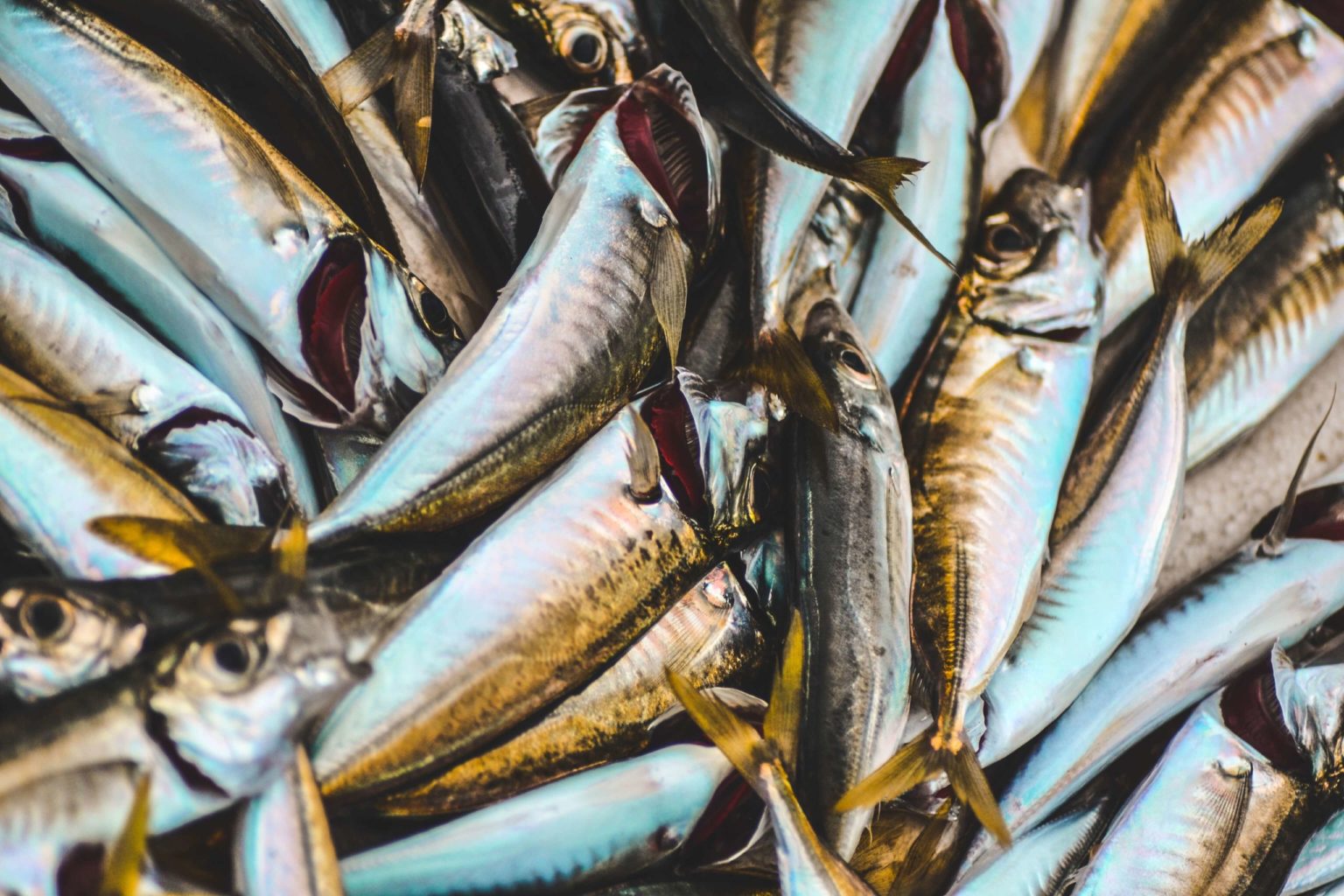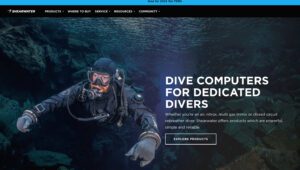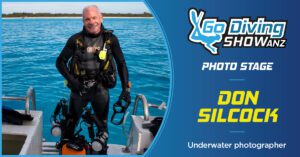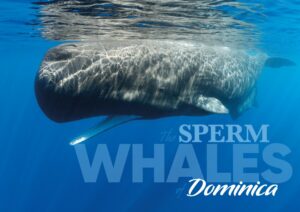The Birdhead Seascape was established in 2004. This unique area found in Eastern Indonesian region of West Papua is a cover an area of roughly 22.5 million hectares that stretches from the northern regions of Cenderawasih Bay through Raja Ampat to Triton Bay in the South. This joint marine conservation initiative was started to ensure the long-term management of the world’s most biodiverse marine ecosystem. Situated in the centre of the coral triangle the area is home to more than 75% of the worlds known coral, over 1300 reef fish and 600 mollusc species in the Raja Ampat region alone.
Since the establishment of the initiative 26 Marine Protected Area (MPA’s) have been established to help protect this incredibly diverse ecosystem. Raja Ampat alone is home to 7 of these MPA’s that serve to protect the marine eco system as well as the mangrove forests that are found in the archipelago of about 1500 small islands that surround the nutrient rich waters of the Dampier Straits. These MPA’s are designed to minimise the impact human fisheries, development, and tourism practices in the region.
Map of Raja Ampat Marine Protected Areas
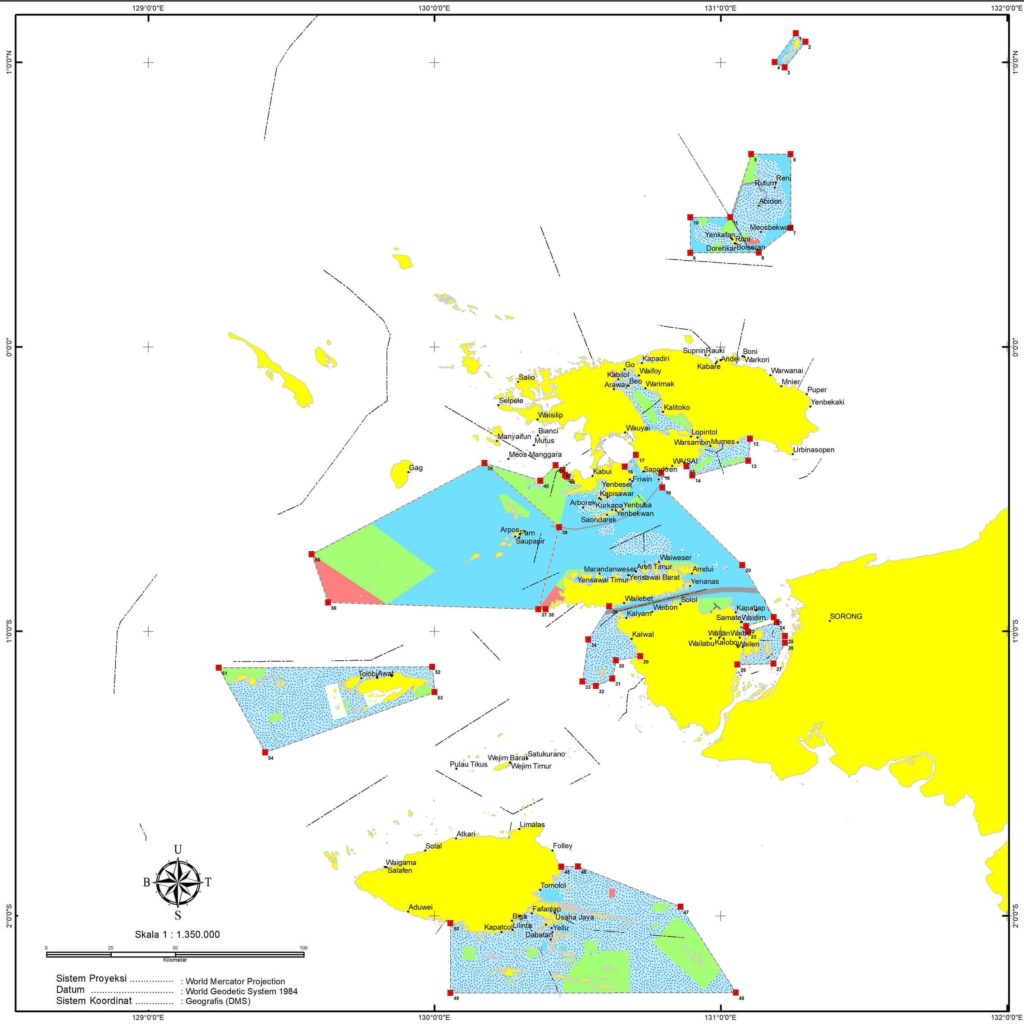
Ref: https://rajaampatmarinepark.com/raja-ampat-mpas/
Map Legend of Raja Ampat Marine Protected Areas
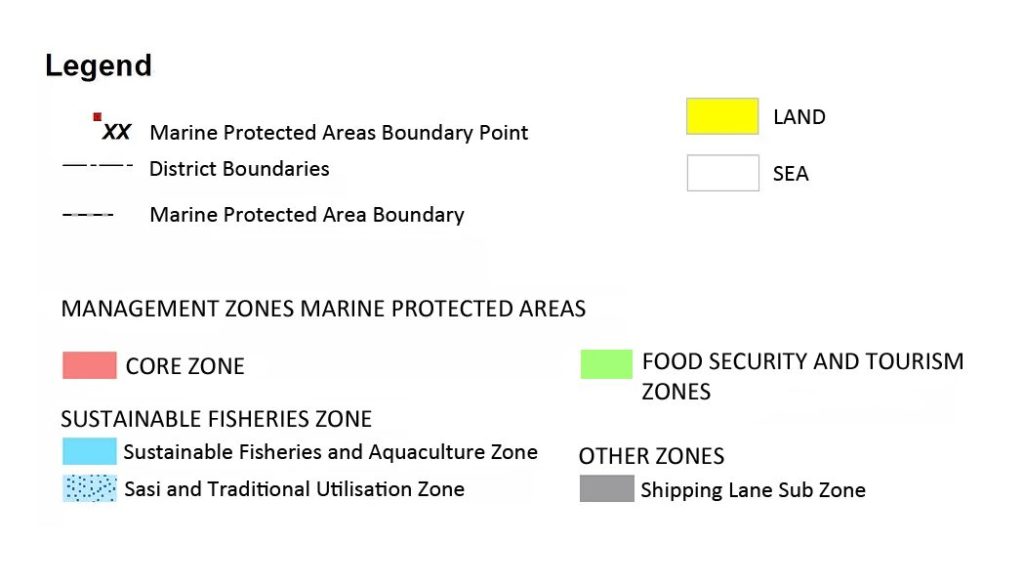
Ref: https://rajaampatmarinepark.com/raja-ampat-mpas/
Because of the large density of marine species found in the relatively small area of Raja Ampat it comes as no surprise that in the past this area like many other was the target of commercial fisheries and poachers who wreaked havoc on the area.
As a whole Indonesia is home to some of the largest fisheries in the world. Indonesia is known as having some of the richest fishing grounds in the world that spreads over m re than 17 000 islands that make up the country. Because of the sheer size of the waters that surround these islands it is an exceedingly difficult task to monitor the ethical and legal practices modern fisheries require to be a sustainable industry.
Along with the sheer number of commercial fisheries that are active in the area Indonesia has also been one of the leading countries in the destructive practice of blast fishing methods for over 50 years.
Blast fishing is a highly destructive fishing method where explosives are used to kill and stun large schools of fish after which the fish is easily collected in large nets. This method allows fishermen to spend a fraction of the time to yield the same catch as they would with normal fishing practices. Another form of blast fishing includes the use of concentrated poisons such as cyanide that is introduced to areas with large fish populations to kill many fish in a short period of time.
Both methods are incredibly harmful to the environment and delicate ecosystems.
While these methods of fishing kill masses of fish very quickly most of the fish that are affected are not even collected by the fishing nets as the majority sink to the bottom before they can be collected.
Description of Zoning in Raja Ampat Marine Protected Areas
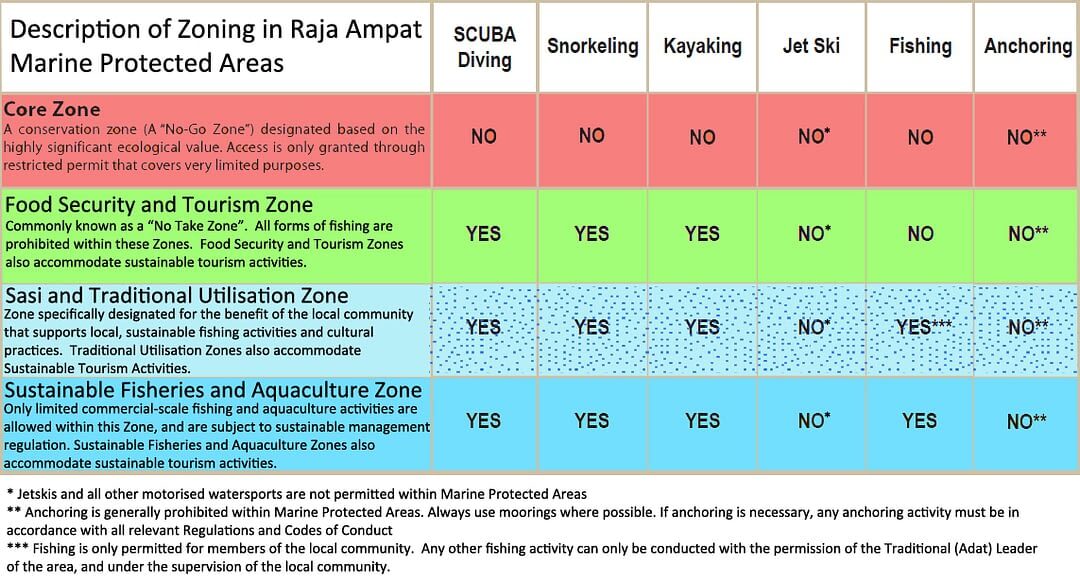
Ref: https://rajaampatmarinepark.com/raja-ampat-mpas/
While the Indonesian government have gone to great lengths to outlaw and monitor the use of these fishing methods it is still difficult to regulate. With many resorting to using homemade explosives. These explosives turn the formerly rich coral reef ecosystems into dead desolate areas on the ocean bed. The same can be said for cyanide fishing that poisons the entire food chain for many generations and even affects the quality of the fish we as consumers ingest. The effects of these methods last for years and some areas will never recover.
While Raja Ampat and the rest of the MPA areas of the Birdshead Seascape have all been victim to these fishing methods in the past the establishment of the MPA areas have led to a drastic improvement in the health of the eco-systems.
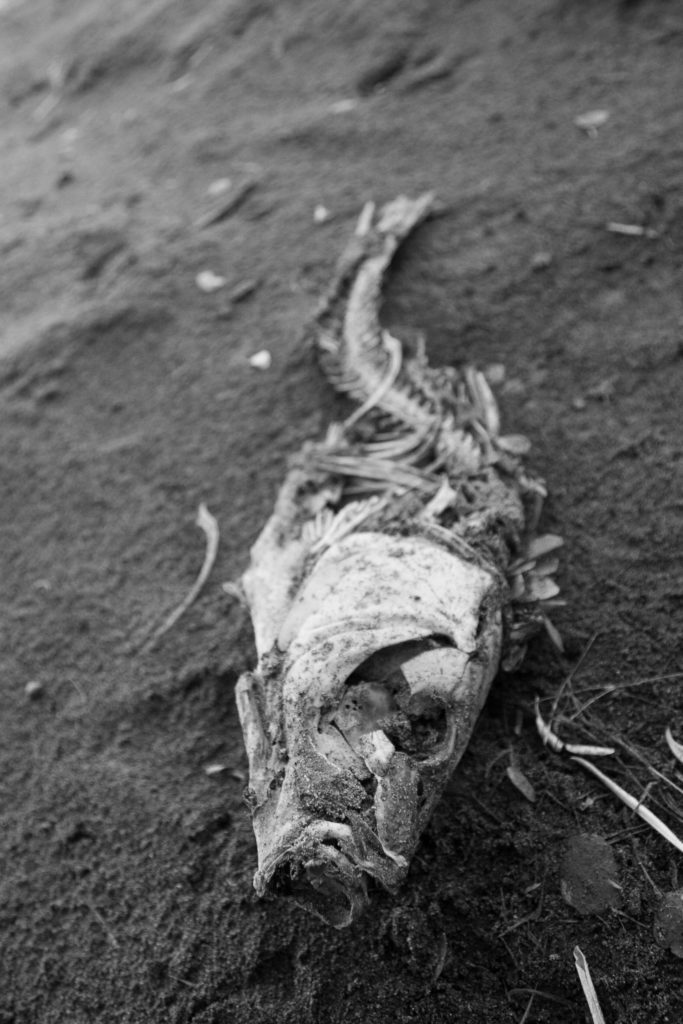
While the establishment of MPA’s do not guarantee that these areas will no longer be the target of fisheries they rather raise a communal awareness of the impact these practices have on the eco- system. In an area as remote as Raja Ampat communities are completely reliant on the environment and the opportunities they provide to survive.
While most communities in the area are fishermen, they have learnt to find the balance in what they catch and conserving the environment for future generations. These communities have also come to understand that eco-conscious tourism initiatives are much more profitable and sustaining than mass fishing these reefs will ever be. With thousands of divers traveling to the area yearly to experience the rich marine ecosystems.
As a result, the local communities of Raja Ampat have taken it on themselves to monitor and police the waters of the MPA’s. A practical approach to a problem that could ruin their paradise.
The Raja Ampat community have greatly benefitted from the establishment of MPA zones and tourists that visit the area greatly aid the efforts of the local government and community by paying park fees to visit these areas to ensure the area will continue to be the breath-taking destination it is.
About Organisation:
Situated in Raja Ampat, Indonesia, Meridian Adventure Dive is a PADI 5 Star Resort and winner of the PADI Green Star award. Scuba divers enjoy our professional services that have become synonymous with both the PADI and Meridian Adventure names. Raja Ampat is one of Indonesia’s most captivating diving grounds and is truly a paradise on earth.
